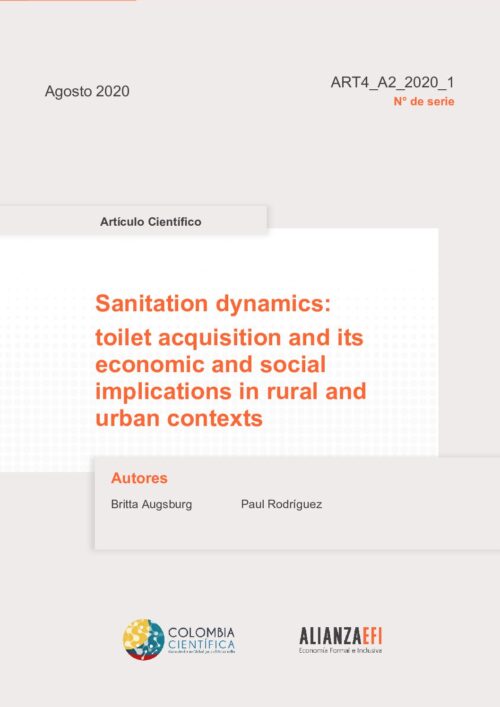This paper uses primary micro-data from Indian households residing in rural villages and poor urban neighbourhoods to shed light on household sanitation decision-making. We use a theoretical economic model to reduce the dimensionality and complexity of this process. Beyond the most commonly analysed motivator, health, we consider economic and non-pecuniary benefits. We provide empirical evidence that each of these margins matter, and do so in both rural and urban contexts, and discuss how our findings can be explored in sanitation policy and programme design.
Autores:
- Britta Augsburg
- Paul Rodríguez
Palabras clave:
- economic drivers
- household investment
- india
- sanitation
- WASH
Categorías:
- Proyecto 4
- Publicación
